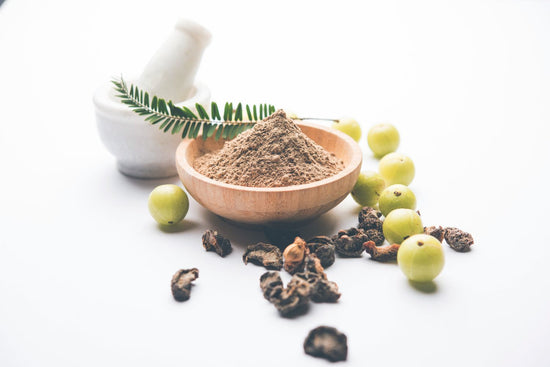From the time you begin thinking about conception, you'll become acutely aware of what you put into your body. You want to provide the best space possible for conception and for your baby to grow. Post-birth, you'll likely want to ensure that your little one is getting adequate nutrition through breastmilk and that your body is healing so you can be the best mother to your little one.
Throughout this entire period, you will probably hear a great deal about vitamins and supplements. Especially prenatals and postnatals. When it comes to postnatal vitamins vs. prenatal, what's the difference? As you may have guessed, prenatal vitamins are for the time before birth, including pregnancy and conception. Postnatal vitamins are for post-birth, known as the postpartum period.
In truth, however, their goal is the same. To provide optimum nutrition to mothers in the form of macro and micronutrients. Many may also contain herbs to promote mental wellness, breastfeeding, and other motherhood concerns. Increased nutrition is essential in both stages. During conception and pregnancy, your body puts a lot of energy into growing a baby, necessitating high levels of vitamins and minerals. After birth, your body is healing and draws on your nutrient stores to both keep you healthy and feed your little one.
You'll need the best postpartum and prenatal vitamins to support your (and your baby's) nutritional demands.
What Are the Best Postnatal and Prenatal Vitamins?
All vitamins are not created equal. However, we would also recommend that the best vitamins are ones that you'll actually take. Suppose your vitamins are difficult to swallow, have a bad taste, or just don't suit your tastes. In that case, you probably won't take them regularly. This is why you should find a vitamin that suits your needs and preferences so that you will consistently take them to keep up your nutrition.
That being said, there are a few things you should be mindful of when choosing vitamins.
Look for quality ingredients. You won't want to ingest anything with questionable ingredients. The FDA does not approve Vitamins and supplements, though they do regulate them. Nevertheless, you'll want to check where the ingredients are sourced from and how they're prepared. Sometimes, third-party companies will certify products, but usually, it's on the consumer to do their research.
Additionally, check out where the vitamins are made. Are they produced in a certified factory in the United States? For example, Freshly Moms Elite Prenatal capsules are made in the US and tested for heavy metals in an FDA-regulated facility. Ensuring that the producer uses safe sourcing, processing, and production techniques is essential for anything you plan to put into your body!
Now that you know how to choose your pre or postnatal vitamins, let's talk a little bit more about each, including when to use them.
Benefits of Prenatal Vitamins
Remember, the difference between prenatal and postnatal vitamins is timing, and prenatal vitamins are meant to be used prior to birth. Does this mean they can only be used during pregnancy? No!
While you may receive better outcomes from a vitamin tailored to conception needs, like Fertility Supplements for her, prenatals can be used when you're trying to conceive (though you shouldn't use both fertility supplements and prenatal together). When you become pregnant, prenatal can help support your developing baby and boost your nutrient stores for birth and postpartum.
There are many benefits of prenatal vitamins. Including:
Support for your growing baby. Prenatal vitamins often contain essential ingredients, like folic acid, that help prevent specific issues with a developing fetus. In most cases, women aren't assured of getting all the micro and macro nutrients they need from their diet, which makes supplementation necessary.
Support for you. Adequate levels of vitamins and minerals can have lots of health benefits. Getting enough iron can help prevent anemia, which could negatively affect oxygen delivery to your baby. Vitamin C can help your body fight off germs at a time when your immune system is suppressed. Vitamin D can be tricky to get in northern climates during the colder month but is vital for bone health, especially in preparation for breastfeeding, which can deplete bones.
Support for the future. It's a great idea to build your nutrient stores during pregnancy in order to start postpartum off on the right foot. Birth takes a lot out of our bodies and requires time to heal; to do this, your body will need proper nutrition. Additionally, breastfeeding requires a lot from us, too, necessitating adequate nutrient levels. Why not prepare for the postpartum period during pregnancy?

Side Effects of Prenatal Vitamins
By now, hopefully, you see just how great prenatal vitamins can be. However, as with all supplements, they can have a few side effects.
Nausea is the most common since the influx of vitamins and minerals can overwhelm an already touchy stomach during pregnancy. Other side effects include constipation from iron, bloating from omega-3 fatty acids, and DHA or fish oil gassiness. As with all foods or supplements, there is always the risk of an allergic reaction.
You should talk with your doctor if you notice any of these symptoms, hives, easy bruising, or dry and itchy skin since starting prenatal vitamins.
Which Prenatals Are Best to Buy?
We recommend choosing a prenatal vitamin that uses quality ingredients and is produced by a reputable manufacturer. There are various types of prenatal vitamins, from pills to gummies. Find one that suits your tastes and preferences so you're sure to take it.
If you're trying to become pregnant, a fertility supplement can be an excellent way to stay on top of your nutrition while supporting your reproductive system. They can be taken along with prenatal for three months before conception, then stopped once you conceive and replaced with a prenatal.
Osh Wellness by Freshly Moms
Elite Prenatal is the most comprehensive Prenetal ever made. A blend of 26 vitamins, minerals and botanicals, this prenatal has enhanced absorption and increased bioavailability of all essential nutrients.
Advantages of Postnatal Vitamins
The habit of taking your vitamins doesn't end when you give birth. Maintaining proper nutrition is essential to preventing postpartum depletion. Vitamins and nutrients can also help you heal quickly, promote mental wellbeing, and support breastfeeding goals.
It's important to note that there are lactation products, and then there are postnatal vitamins not only for breastfeeding. The best ones are often those that support both the mother's health and lactation. Also, some women carry on with their prenatals, but why take prenatals after birth when you can take supplements tailored to postpartum?
Here are some of the advantages of postnatal-specific vitamins:
Support for your baby. If you're nursing, your little one is relying on you for their nutrient intake. This means keeping your nutrition levels up to produce rich and nourishing breastmilk is essential. Supplements with vitamins and minerals can support this. In addition, they may contain herbs that promote breast milk production to increase your milk supply levels.
Support for your physical health. From blood loss to sleeplessness nights, birth and postpartum take a lot out of you – literally. You're giving so much to your baby, but your body still needs to heal. You also need energy and strength to take care of your little one. Vitamins and minerals can nourish your body to promote healing, balance your hormones, and promote vitality. They can also help fend off maternal depletion.
Support for your mental health. Maternal depletion is believed to be linked to an increased risk of postpartum depression. Adding a vitamin to your diet doesn't guarantee your mental health. Still, positive side effects such as balancing hormones and maintaining nutrient levels may promote cognitive well-being.
Side Effects of Postnatal Vitamin
The side effects of postnatal vitamins are similar to prenatal vitamins.
The most common are stomach issues, including nausea, cramping, or stomach upset. Constipation can also occur due to increased iron levels. Taking our vitamins with meals and drinking plenty of water throughout the day can help combat these side effects.
Call your doctor if you experience side effects consistent with an allergic reaction, such as hives, itchiness, swelling, or rash.
Which Postnatal Supplements Are the Best to Buy?
As with all other supplements, choose a high-quality and safe postnatal supplement. Closely check the ingredients and review the manufacturer's commitment to safety.
Aside from safety and quality, choose a blend that best suits your needs. Nursing mothers may look for a supplement that supports their lactation goals. However, even products that include breastfeeding benefits can be helpful to mothers who don't plan to nurse. A well-rounded supplement should support all the facets of new motherhood, including physical and mental.
In many cases, postnatals are recommended to be taken for at least six months following the birth of your baby. You'll want to choose complete support to see you through life's changes during this sacred time.
Is It Safe to Consume Prenatal and Postnatal Vitamins?
Before taking any supplement, you should always consult with your doctor.
The possibility of receiving too much of a specific vitamin or mineral could have negative impacts. However, if you take the supplements as recommended, this usually is not a concern.





